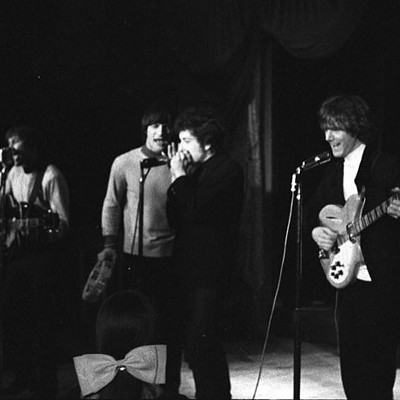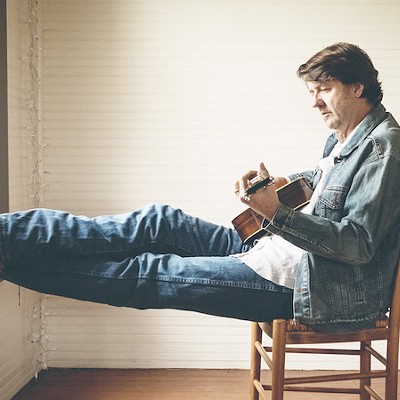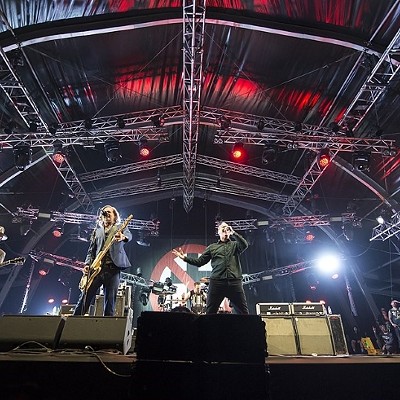[Updated Friday at 4:30 p.m. with comments from a former Houston reggae promoter who asked to remain anonymous, because "I still have hopes of continuing in the Houston reggae industry." His comments are underneath the original story.[
Today would have been the late Bob Marley's 70th birthday. A simple Facebook search yields dozens, if not hundreds, of celebrations in the reggae icon's honor across the globe, places like Austin; Brooklyn; London; Baltimore; Knoxville, Tenn.; Key West,Fla.; and even the Ukraine.
But Houston...not so much. Not only is no quasi-official birthday party scheduled, there's not even a reggae band playing in town tonight that we could find. However, fans looking for somewhere to gather and soak in Marley's one-love rastaman vibration can head to Club Riddims on West Bellfort, where CEO Fadda Owen says a DJ will be spinning Bob's tunes all night; "of course we will." Its shopping-center neighbor, the Cool Runnings Caribbean cafe, is also a likely candidate; downtown's newly opened Nightingale Room is also playing all Marley tonight. But even the leader of one of Houston's top reggae groups -- and there aren't that many to start with -- says they have an open date this evening.
"We can't find anybody," says Idiginis singer/guitarist Aauzraam Levi, meaning a gig. "If we knew of anything that was happening, of course we'd love to be a part of anything."
Levi, a native Houstonian who founded Idiginis in 2008, is looking forward to opening for Marley's backing band, the Wailers, at House of Blues on March 25. It'll be Idiginis' first real opportunity to play songs from their brand-new CD, Decisions, in front of a big crowd since the album's release. But, he sighs, it takes a major touring act like that to draw out Houston's reggae faithful.
"There's really no avenue for reggae music here unless it's at the House of Blues with somebody big," Levi says. "We're the fourth-largest city in the country, man. We should be able to put on something monthly, but we can't find anybody.
"And all everybody wants to do is, 'Aw man, we'll pay you $200' -- I have a seven-piece band," he laughs. "You know? It bothers me that there's not more avenues for the music, because it's a beautiful music."
Marley, who was only 36 years old when he passed away from cancer in May 1981, is a music legend on par with other gone-too-soon stars like Jimi Hendrix, Janis Joplin, Kurt Cobain or Tupac Shakur, all of whose albums have also continued selling big numbers long after their deaths. But Marley is unique among them in that he not only transcended his musical genre to reach the highest level of celebrity, but embodied it. For millions of people around the world who may or may not have ever listened to a Jimmy Cliff, Peter Tosh or Burning Spear album (but probably haven't), Bob Marley is reggae, even today.
This year Universal, the label that controls Marley's music, is rolling out an extensive campaign to mark this milestone anniversary starting later this month with the release of the never-before-released CD/DVD package Bob Marley & the Wailers -- Easy Skanking In Boston, taken from two shows Marley and the band performed at Boston's Town Hall in June 1978. To date, Marley's catalog has sold an estimated 75 million copies, including 27 million of his posthumous compilation Legend alone.
REWIND: The White Album: How Bob Marley's Legend Became a Blockbuster in Death
Although some areas of the singer's legacy have become problematic -- numerous lawsuits between the label and band members; the splintering of the surviving Wailers into two factions, the Wailers and the Original Wailers; the fact that, frankly, Marley's audience today is overwhelmingly white -- his ongoing commercial clout seems to guarantee that future generations will continue listening to (and playing) his music for years to come, people of all creeds and colors.
To Idiginis' Levi, there's no great secret or magic formula why Marley's music continues to reach so many people approaching 35 years after his death, just the universal message at its core.
"Oh man," begins Levi. "The first time I heard it, it was like...I don't know, angels. What he spoke about was love, unity, peace, equality and justice. Right then, it caught my ear. On our CD, we have a song called 'Lupej,' which actually spells out those words.
"So with that in mind, when you come to Marley, you understand that you have a decision, and the decision is that you can choose to love, or not to love, because one of his songs says, 'Could you be loved, and be love?'," he continues. "Or vice versa, 'Could you be love, and be loved?' That's why I went to Jamaica, where he was born; to feel that love. And it's there."
Story continues on the next page.






